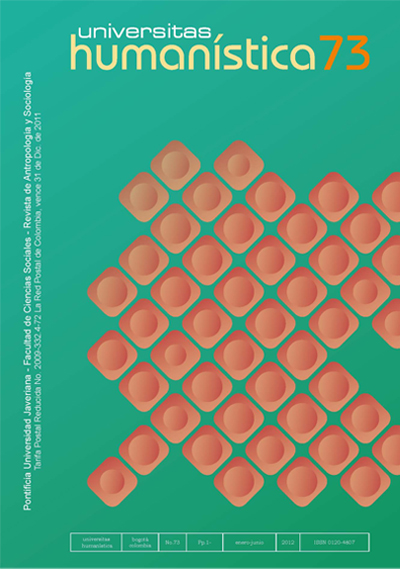Abstract
In the complex scenario surrounding the crisis of the coffee-centered development model in the province of Risaralda, we analyze the role of 1997-2007 development plans in relation to the right to life, and interpret the emerging model that gradually replaced the one in crisis. The qualitative profile of the study, defined through the construction of test cases, focus groups and semi-structured interviews, was accompanied by quantitative data that helped us understand the construction of the social realities analyzed in the study. This exercise brought to light serious acts and omissions that have resulted in violations of human rights. The priorization of development showed the axes of the emerging model transformation, while obscuring the impacts of these changes, including the emerging illegal elites that concentrated regional power and contributed to the "reinvention of the territory" in the context of a hegemonic and one-dimensional development discourse.
This journal provides immediate open access to its content on the principle that making research freely available to the public, encourages greater global exchange of knowledge.
The journal Universitas Humanística is registered under a Creative Commons Attribution 4.0 International Public License. Thus, this work may be reproduced, distributed, and publicly shared in digital format, as long as the names of the authors and Pontificia Universidad Javeriana are acknowledged. Others are allowed to quote, adapt, transform, auto-archive, republish, and create based on this material, for any purpose (even commercial ones), provided the authorship is duly acknowledged, a link to the original work is provided, and it is specified if changes have been made. Pontificia Universidad Javeriana does not hold the rights of published works and the authors are solely responsible for the contents of their works; they keep the moral, intellectual, privacy, and publicity rights.
Approving the intervention of the work (review, copy-editing, translation, layout) and the following outreach, are granted through an use license and not through an assignment of rights. This means the journal and Pontificia Universidad Javeriana cannot be held responsible for any ethical malpractice by the authors. As a consequence of the protection granted by the use license, the journal is not required to publish recantations or modify information already published, unless the errata stems from the editorial management process. Publishing contents in this journal does not generate royalties for contributors.


